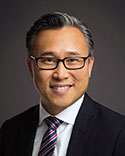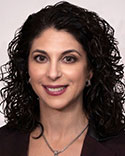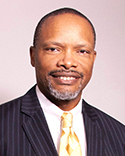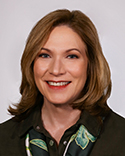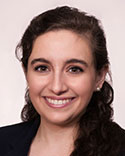Five Duane Morris attorneys have been honored as “Best of the Bar: Philadelphia’s Top Lawyers” by Philadelphia Business Journal for their significant and recent achievements.
Below are excerpts of their profiles.
Phil Cha | Business Litigation
Cha, team leader of his firm’s energy [industry group] who litigates environmental, commercial and mass tort matters, represented a chemical manufacturer subsidiary of a global, publicly-traded petroleum company in defense of a lawsuit concerning historic contamination at a gasoline service station in Clifton, New Jersey, where the current owner sought past and future remediation costs. His roster of clients have included major corporations such as Occidental Petroleum Corp., Sunoco, Exxon Mobil Corp., Lukoil and Aramark Corp.
Who has been your chief professional mentor and what is the biggest lesson you learned from that person?
Robert Lehman, my former senior partner. He taught me the importance of attention to detail and critical thinking.
What needs to happen for more women and minority lawyers tobecome managing partners and chairs of law firms?
Women and minority lawyers need to make themselves critical. Clients need to demand it. Law firms need to evolve.
Caroline M. Austin | Employment Litigation
Austin was lead partner for defendant JEVS Human Services in a class action case brought by two lifesharing providers (essentially foster care parents for adults with intellectual disabilities) in JEVS lifesharing program. They claimed JEVS misclassified them as independent contractors rather than employees under the FairLabor Standards Act and Pennsylvania Minimum Wage Act and sought to obtain minimum wage and overtime for the class. A federal judge granted JEVS’ motion for summary judgment andheld that the lifesharing providers in JEVS were properly classified as contractors.
Who has been your chief professional mentor and what is the biggest lesson you learned from that person?
Phil Garber, my former Wolf Block and Duane Morris partner who passed away years ago. Phil became my sounding board, strategist and editoron many issues, matters and briefs. Nobody matched his analytic alability and strategic thinking. He always found the weakness in myargument and asked the tough questions, which improved our presentation, made the oral argument stronger, or the brief more persuasive. His strategic focus on the big picture, other perspectives and the answer to “why” helped me become a better attorney. I enjoy playing Phil’s role for others and I always learn something too.
What needs to happen for more women and minority lawyers tobecome managing partners and chairs of law firms?
Women and minority lawyers must actively seek mentors within their firms whocan provide advice on how to navigate professional growth within the firm. In addition, law firms can/should identify women and minority lawyers who demonstrate the interest and skills to become an effective leader and affirmatively take steps to train and groom them to meet the requirements for leadership roles.
John Nixon | Tax/ERISA
Nixon advised Allentown-based Fortune 500 company Air Products, which sells gases and chemicals for industrial uses, in federal tax and ERISA compliance in connection with the establishment of its Legal Advocacy Program. The program was created to provide free legal services to Air Products’ workers and their families victimized by racial, sexual orientation or gender identity discrimination. It is unique in that the program deals specifically with these issues and its staff, primarily with minority and women-owned firms curated by the company’s human resources and legal teams. It was established in response to a series of high profile incidences of violence against Black Americans.
Who has been your chief professional mentor and what is the biggest lesson you learned from that person?
Clarence Armbrister. Clay was a partner at Saul Ewing when I started out of law school. He’s gone on to have a varied career including stops as city managing director and is now president of Johnson C. Smith University in Charlotte, North Carolina. Clay had a keen ability to “keep his powder dry” and stay calm when others were stressed. He could always focus on the big picture and not get bogged in the minutia (and sometimes pettiness) of a given situation. That ability to stay focused in the moment was something I’ve always tried to emulate and that clients appreciate. What is your biggest pet peeve when it comes to fictional accounts of lawyers and lawyering? That “lawyer” is synonymous with “trial lawyer.” No offense to my brethren, but much of the best and most influential legal practice in done nowhere near a trial or appellate courtroom.
If there was a legal matter of historical significance that you could have handled, which one would you pick and why?
Plessy v. Ferguson, which established the separate but equal doctrine and forged racial inequities that still exist to this day. I am not presumptuous enough to believe that I could have made a difference given the constitution of the Supreme Court in the 1890s. But I’ve often thought of where we could be as a society and a nation had that case been decided differently.
Sharon Caffrey and Leah Mintz | Pro Bono
Litigators Caffrey and Mintz supported the appellate lawyers for Nicole Addimando, a young mother in New York and victim of years of extreme domestic abuse, who killed her abuser after he threatened to kill her. After turning herself in, Addimando was sentenced to 19 years to life after the court refused to apply the recently enacted New York Domestic Violence Survivors Justice Act, which permits courts to impose reduced alternative sentences for survivors regarding offenses related to their abuse and permits retroactive resentencing. Caffrey and Mintz led a Duane Morris team in drafting an amicus brief pro bono on behalf of New York state legislators who sponsored or supported the act. They arguedthe act’s intent was to permit flexibility for women like Addimando and to consider the mitigating factors related to the abuse. On June 14, the New York Supreme Court reduced Addimando’s sentence to 7.5 years, making her eligible for parole in three years.
Who has been your chief professional mentor and what is the biggest lesson you learned from that person?
SC: Beatrice “Beatty” O’Donnell is probably one of my most supportive mentors at Duane Morris, although I have several mentors and sponsors including Matt Taylor, Tom Servodidio and Rob Byer. Beatty taught me to leave no stone unturned in a case and to be a relentless advocate for my clients.
LM: I am lucky to have two wonderful mentors – Rob Byer and Rob Palumbos. Both have taught me to think of brief writing not just as a tool to educate, but to persuade, such as by omitting unnecessary words and framing each argument around key rhetorical points.
What needs to happen for more women and minority lawyers tobecome managing partners and chairs of law firms?
SC: Firms should identify women and diverse lawyers with leadership skills early and send them for leadership training, bring them into leadership meetings early and be intentional about advancing them through the leadership ranks to practice group leadership, partners’ board and possibly the firms’ highest leadership committee. Our firm has done this very intentionally for at least the past 15 years.
LM: The lawyers who already hold those important positions not only need to mentor upcoming women and minority lawyers, but actively sponsor those lawyers. For example, ask current clients to give these upcoming lawyers chances to argue cases or introduce the upcoming lawyers to leaders in their fields.
For more information, visit the Philadelphia Business Journal website.








